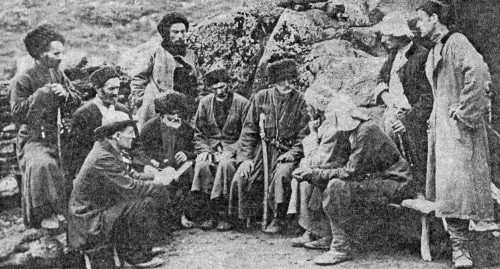
09 January 2019, 11:34
Scientists criticize the idea of setting up traditional Tarkhon Court in North Ossetia
The attempts of creating some social mechanisms, based on the customary law, are associated with the actualization of ethnic and national projects; however, they are not always successful, said Akhmet Yarlykapov, a political analyst. The initiative of the Ossetians' Supreme Council, which has suggested recreating the traditional Tarkhon Courts, is not viable, as there is no common understanding of the customs, said Khadjimurat Gatsalov, the Mufti of North Ossetia. The Ossetian society is too heterogeneous and not ready to follow uniform standards, believes Georgy Chochiev, a historian.
In its website, the Ossetians' Supreme Council (Styr Nykhas) has published the Regulation on the Institute of Public Response "Tarkhon" (translated from the Ossetian as "court" – note of the "Caucasian Knot").
The measures of public responses a include a warning; a condemnation of one's action, including in mass media; a severe condemnation; and a social rejection as a last resort, including refusal to assist the "convict", including a ban on inviting him/her to any event (for example, to weddings and funerals).
The "Tarkhon" functioned in Ossetia under the weak secular power, said Ruslan Kuchiev, the initiator of the revival of the customary law in the region and the President of the Ossetians' Supreme Council.
According to his story, the "Tarkhon" will respond, among other things, to such "moral misconduct", as indecent behaviour in public places with the presence of elderly persons, children and women.
The initiative of the Ossetians' Supreme Council is premature, because its viability is questionable, believes Khadjimurat Gatsalov, the mufti of North Ossetia. He has linked this initiative with the "decline of morality in the society."
An attempt to revive traditional institutions in the society is a sign of the inefficiency of official authorities, says Georgy Chochiev, a historian. However, he sees no particular prospects for the initiative.
This article was originally published on the Russian page of 24/7 Internet agency ‘Caucasian Knot’ on January 9, 2019 at 06:22 am MSK. To access the full text of the article, click here.
Author: Magomed Tuaev Source: CK correspondent




